It is altruistic to execute an affidavit of support for an immigrant relative to get an immigrant visa in the United States. But the act can expose a person to litigation. In Dahhane v. Stanton, this is exactly what is going on. If you are sponsoring a relative for an immigrant visa in the United States, please make sure that you understand the affidavit of support contract that you are executing.
DAHHANE v. STANTON
Adam Dahhane, Plaintiff, v. Linda Lorraine Stanton a/k/a Linda Lorraine Stanton-Dahhane, and Bonnie Lynn Stanton, Defendants.
United States District Court, D. Minnesota.
August 4, 2015.
Adam Dahhane, pro se Plaintiff.
Amadu Edward Swaray, Esq., for the Defendants.
REPORT AND RECOMMENDATION
JEFFREY J. KEYES, Magistrate Judge.
This case is before the Court, United States Magistrate Judge Jeffrey J. Keyes, on Plaintiff’s Motion to Strike Defendants’ Affirmative Defenses and Jury Demand and to Dismiss Defendants’ Counterclaims (Doc. No. 12). The matter has been referred to this Court for a Report and Recommendation pursuant to 28 U.S.C. § 636 and Local Rule 72.1. For the reasons discussed below, the Court recommends that Plaintiff’s motion be granted in part and denied in part.
I. BACKGROUND AND CLAIMS
Plaintiff commenced this action to enforce contractual financial obligations which he alleges that Defendants owe him under provisions of the Immigration & Nationality Act (“INA”). Plaintiff is a native of Morocco. He came to the United States in 2001 and was married to Defendant Linda Stanton on September 22, 2001, in Minnesota. Plaintiff’s eligibility to immigrate and remain in the United States required that his immigration sponsor execute an Affidavit of Support Form I-864 (“Form I-864”). 8 U.S.C. § 1183a. The purpose of the Form I-864 is “to show that an intending immigrant has adequate means of financial support and is not likely to become a public charge.” (Doc. 1-1, Compl., Attach. 1.) On October 8, 2001, Linda Stanton and her mother, Bonnie Stanton, signed separate Form I-864s as joint sponsors for Plaintiff’s immigration. Sponsorship eligibility requires that the sponsor(s) agree to “provide the sponsored immigrant(s) whatever support is necessary to maintain the sponsored immigrant(s) at an income that is at least 125 percent of the Federal poverty guidelines,” and provides that the support obligation continues until: (1) the sponsor’s death; or (2) the sponsored immigrant becomes a U.S. citizen, can be credited with 40 quarters of work, departs the U.S. permanently, or dies. (Id.)
Plaintiff and Defendant Linda Stanton permanently separated on November 15, 2008 and were divorced on February 27, 2013. Plaintiff commenced this lawsuit by Complaint filed on March 11, 2015, alleging that the Defendants failed to honor their Form I-864 contract obligations to financially maintain Plaintiff at 125 percent of the Federal poverty level. Count I alleges that Defendant Bonnie Stanton did not honor her financial obligation from 2001 to 2007, but Plaintiff “reserves” the issue of damages on that count. Count II alleges that both Defendants failed to honor financial obligations from 2008 to 2011. The Defendants filed separate but identical Answers in which they admitted, denied or qualified the individual allegations in the Complaint. Also, the Answers contained identical listings of concisely stated affirmative defenses, as well as a counterclaim which consists of numerous fact assertions, culminating in a claim for attorney fees and costs incurred in defending this action. Finally, the Answers each contain a demand for jury trial.
Plaintiff now moves, pursuant to Fed. R. Civ. P. 12(f), to strike the affirmative defenses on grounds they are not supported by plausible facts sufficient to satisfy pleading requirements under Bell Atlantic Corp. v. Twombly, 550 U.S. 570 (2007) and Ashcroft v. Iqbal, 556 U.S. 662 (2009).1 Plaintiff moves to dismiss the counterclaim allegations on grounds that that they are insufficient and redundant, and that the counterclaim should be dismissed pursuant to Fed. R. Civ. P. 12(b)(6) for failure to state a legal claim for relief, and pursuant to Iqbal and Twombly for failure to assert facts sufficient to state a plausible claim. Plaintiff moves to strike the jury trial demand on grounds that the cause of action in this case is based on a statutory provision that creates no explicit right to a jury trial, and this action is not one in the nature of a suit at common law for which a jury trial is typically allowed.
II. ANALYSIS
1. Affirmative Defenses
Plaintiff’s motion to strike Defendants’ affirmative defenses should be denied. Fed. R. Civ. P. 12(f) states that the court may strike an insufficient defense or any redundant, immaterial, impertinent, or scandalous matter. Plaintiff does not argue that the Defendants’ affirmative defenses are immaterial, impertinent, or scandalous, but contends that the defenses are insufficiently pled in light of the plausibility standards underTwombly and Iqbal. The alleged affirmative defenses are:
(1) Plaintiff lacks standing to bring his claims;
(2) Plaintiff fails to state a claim upon which relief can be granted;
(3) The statute of frauds precludes Plaintiff’s claims;
(4) The parole evidence rule bars Plaintiff’s claims;
(5) Defendants owe Plaintiff no duty that they have breached for which Plaintiff should be compensated;
(6) Plaintiff’s claims fail on grounds of fraud; and
(7) Plaintiff’s 8 U.S.C. § 1183a and Form I-864 contract claims are barred on the ground they cannot be retroactively asserted.
Fed. R. Civ. P. 8(c) states that in responding to a pleading, a party must affirmatively state any avoidance or affirmative defense and provides a list which specifically includes, but is not limited to, fraud and statute of frauds. A motion to strike a defense should be denied “if the defense is sufficient as a matter of law or if it fairly presents a question of law or fact which the court ought to hear.” Lutzeier v. Citigroup, Inc., 305 F.R.D. 107, 111 (E.D. Mo. 2015) (quoting Lunsford v. United States, 570 F.2d 221, 229 (8th Cir. 1977)). Motions to strike under Fed. R. Civ. P. 12(f) are disfavored and infrequently granted and should not be granted unless the defense, as a matter of law, cannot succeed under any circumstances. Id. (citations omitted). A motion to strike should not succeed unless the moving party shows prejudice by inclusion of the defense or that the defense confuses the issues. Id. (citations omitted).
As to whether an affirmative defense must satisfy the plausibility standards of Twomblyand Iqbal, it has been held in this district that those standards do not apply to the pleading of affirmative defenses because those cases are grounded in a need, under Fed. R. Civ. P. 8(a)(2), to provide a statement showing that a “claim for relief” is plausible, and an affirmative defense is not a claim for relief. Wells Fargo & Co. v. U.S., 750 F.Supp.2d 1049, 1051 (D. Minn. 2010). Also, it is unfair to impose a plausibility pleading standard on a defendant who has a mere 21 days to answer, unlike a plaintiff who may have had months or years to investigate a claim before pleading. Id. And, as in this case, imposing the Twombly and Iqbal pleading standard would simply introduce a largely unnecessary and burdensome round of motions asserting the futility of affirmative defenses. Id.
Here, the motion to strike affirmative defenses is based on Plaintiff’s contention that theTwombly/Iqbal plausibility standard applies. This contention is incorrect. Moreover, Plaintiff has shown no prejudice or confusion that is likely to arise as a result of the affirmative defenses. “In a typical case, it quickly becomes apparent that most of the affirmative defenses are not viable, and the parties simply ignore them. No judicial intervention is necessary.” Wells Fargo & Co. v. U.S., 750 F.Supp.2d 1049 at 1051. To the extent that either side in this case seeks to flesh out further facts and information relating to asserted defenses, there is no indication that anything more that modest and appropriately directed discovery would be required. Plaintiff’s motion to strike should be denied as to affirmative defenses.
2. Counterclaims
Plaintiff’s motion to dismiss Defendants’ counterclaims should be granted, and the counterclaims should be dismissed without prejudice for failure to state a claim for relief. The pleading that Defendants have designated as a “counterclaim” is merely a recitation of Defendants’ defense to the Complaint, explaining why Plaintiff is not entitled to prevail because Defendants claim they owe Defendant nothing. The counterclaims consist primarily of recitations of background facts and conclusions as to each Defendant’s compliance with Form I-864 obligations, but do not seek damages or other relief from the Plaintiff. Other than a claim for attorney fees and costs, the counterclaim in each Answer does not assert a cognizable legal grounds for relief as required under Fed. R. Civ. P. 8(a)(2).
Under Fed. R. Civ. P. 8(d) the court could treat a mistakenly designated counterclaim as a defense without striking the allegation. Here, the defense was already effectively stated as affirmative defense (5): “Defendants owe Plaintiff[s] no duty that they have breached for which Plaintiff should be compensated.” Redesignation would serve no apparent purpose. Defendants will not be deemed to have admitted Plaintiff’s fact assertions by virtue of the absence of counterclaim allegations. With respect to Defendants’ claims for attorney fees and costs, those claims are appropriately presented after the merits of the case have been considered and liabilities have been determined. The dismissal of the mistakenly designated counterclaims will not bar Defendants from moving for sanctions under Fed. R. Civ. P. 11, or seeking other relief as may be appropriate.
3. Jury Trial Demand
Plaintiff’s motion to strike Defendants’ jury trial demands is premature and should be denied without prejudice. Under Fed. R. Civ. P. 38(a), the right of trial by jury established under the Seventh Amendment, or as provided by federal statute, is preserved to the parties inviolate. Defendants have properly demanded a jury trial pursuant to Rule 38(b). Therefore, trial of this case shall be by jury unless the court, on motion or on its own, finds that there is no federal right to a jury trial as to some or all issues. Fed. R. Civ. P. 39(a).
Plaintiff argues that no right to a jury trial exists in this case because the statute that establishes grounds for the action, 8 U.S.C. § 1183a, contains no authorization for a jury trial, and the cause of action is equitable in nature. Defendants contend that the claim for breach of Form I-864 affidavits is for breach of contract, a common law cause of action on which a right to jury trial exists under the Seventh Amendment.
A Form I-864 affidavit has consistently been held to constitute a binding and enforceable contract between a sponsored immigrant and the sponsor. Cheshire v. Cheshire, No. 3:05-cv-453, 2006 WL 1208010 at *3 (M.D. Fla. May 4, 2006) (citing cases), see also Al-Mansour v. Shraim, No. CCB-10-1729, 2011 WL 345876, *2 (D. Md. Feb. 2, 1011) (citingShumye v. Felleke, F. Supp. 2d 1020, 1023 (N.D. Cal. 2008)). The federal statute, 8 U.S.C. § 1183a, is not the basis for the cause of action, but expressly states that an affidavit must be executed by a sponsor and provides authorization for enforcement of a Form I-864 agreement as a contract. Breach of contract is a claim at law to which the Seventh Amendment right to a jury trial attaches. Smith Flooring, Inc. v. Pennsylvania Lumbermens Mut. Ins. Co., 713 F.3d 933, 937 (8th Cir. 2013).
Whether a jury trial may be held in this case is secondary to the question of whether particular issues survive to the point of trial. For that reason, the final determination as to whether a right to jury trial exists in this matter must properly await further discovery and possible dispositive motion practice. In light of a more fully developed fact record, and as previously discussed in regard to affirmative defenses, it is not uncommon for defendants to abandon or ignore affirmative defenses that are simply not viable, Wells Fargo & Co. v. U.S., 750 F. Supp. 2d at 1051. And the court may find that a right to jury trial exists as to some issues, but not others. Fed. R. Civ. P. 39(a)(2). A final determination on the right to a jury trial, or any trial at all, may be contingent upon which claims and defenses survive discovery and summary judgment. Al-Mansour, 2011 WL 345876 at *2 (determining that plaintiff was entitled to partial summary judgment on liability on a Form I-864 claim to the extent that a valid and enforceable contract existed, but that summary judgment was not appropriate on damages). A decision as to the nature and scope of any trial in this action is premature, and the motion to strike the jury trial demand should therefore be denied.
RECOMMENDATION
It is recommended that Plaintiff’s Motion to Strike Defendants’ Affirmative Defenses and Jury Demand and to Dismiss Defendants’ Counterclaims (Doc. No. 12) be DENIED IN PART AND GRANTED IN PART as follows:
1. Plaintiffs motion to strike affirmative defenses should be DENIED.
2. Plaintiff’s motion to dismiss Defendants’ counterclaims should be GRANTED; and
3. Plaintiff’s motion to strike Defendants’ demand for a jury trial should be DENIED.
Under Local Rule 72.2(b) any party may object to this Report and Recommendation by filing with the Clerk of Court, and serving all parties by August 18, 2015, a writing which specifically identifies those portions of this Report to which objections are made and the basis of those objections. Failure to comply with this procedure may operate as a forfeiture of the objecting party’s right to seek review in the Court of Appeals. A party may respond to the objecting party’s brief within fourteen days after service thereof. All briefs filed under this rule shall be limited to 3500 words. A judge shall make a de novo determination of those portions of the Report to which objection is made. This Report and Recommendation does not constitute an order or judgment of the District Court, and it is therefore not appealable directly to the Circuit Court of Appeals.
Unless the parties stipulate that the District Court is not required by 28 U.S.C. § 636 to review a transcript of the hearing in order to resolve all objections made to this Report and Recommendation, the party making the objections shall timely order and file a complete transcript of the hearing within ten days of receipt of the Report.
FootNotes
1. Under Twombly and Iqbal, a claim for relief is plausible if its factual content would allow the Court to make the reasonable inference that the defendant is liable for the misconduct alleged.Iqbal, 555 U.S. at 678.
This case is currently been argued in The United States District Court in the District of Minnesota on behalf of the Defendants by Amadu Edward Swaray at Swaray Law Office in Brooklyn Center, Minnesota. Swaray is a general practice attorney with immigration law as one of his specialty areas. Brooklyn Center is one of the northern suburbs in the Twin Cities of Minneapolis and St. Paul. The city is contiguous to Brooklyn Park, Crystal, Plymouth and Fridley, among others.



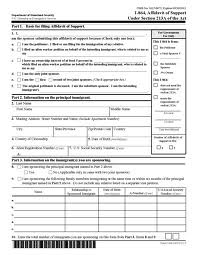
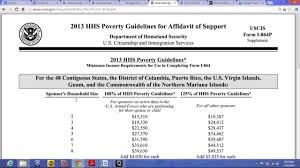
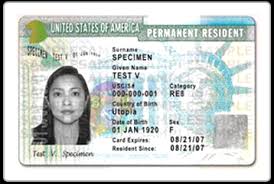
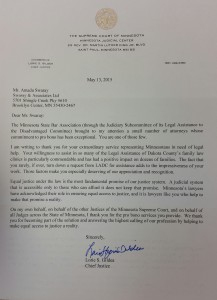





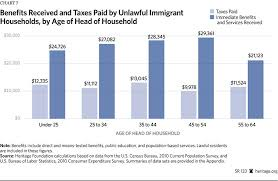


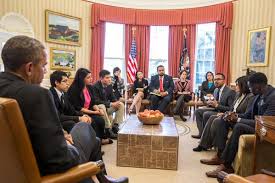
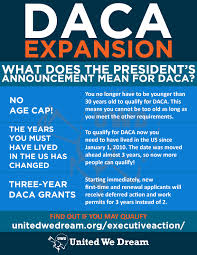
Comment
Leagle.com reserves the right to edit or remove comments but is under no obligation to do so, or to explain individual moderation decisions.
User Comments